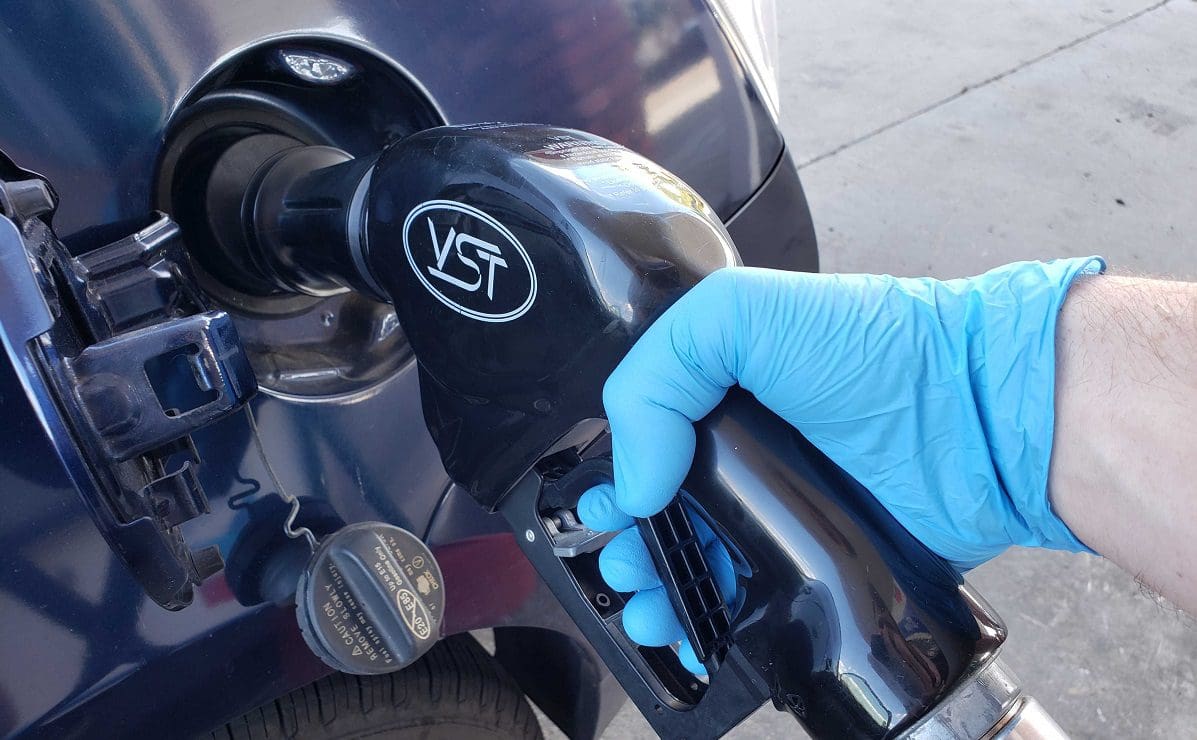Search Posts
Recent Posts
- Senior Agenda Coalition of RI pushes wealth tax to fund programs for older residents – Herb Weiss June 2, 2025
- How will Artificial Intelligence (AI) impact the future of work – Mary T. O’Sullivan June 2, 2025
- Real Estate in RI: Tiverton contemporary for $1.27M June 2, 2025
- Our Networking Pick of the Week: Coffee Hour at Provence Sur Mer, Newport June 2, 2025
- Rhode Island Weather for June 2, 2025 – Jack Donnelly June 2, 2025
Categories
Subscribe!
Thanks for subscribing! Please check your email for further instructions.

Add Gas Pumps to the Risk List
Gas pump handles are a potential source of surface contact transmission of the COVID-19 coronavirus, and one of the many common objects that could be contaminated, so consumers should take reasonable precautions to avoid exposure.
A lot has been said about surface contact being one of the means of transmission of the novel coronavirus, and since gas pumps are objects that are typically handled by many different people throughout the course of a day — in many places without being regularly cleaned between uses (especially in areas where self-service is the norm) — they are a potential route for the virus to spread from person to person.
Just how much risk pumping gas poses relative to other ordinary day-to-day activities is difficult to determine. Consumer Reports, for example, offers advice consistent with what has been expressed in social media warnings:
“For many, the occasional trip to the gas station is inevitable, as is touching the pump handle and payment keypad. Pump handles and credit card keypads, which are high-touch areas, could have the virus present, which experts say can stay alive for hours or even days on hard surfaces …”
So, just as we leave our houses now armed with our mask and sometimes our gloves, here is their suggestions if you will be getting gas in your travels:
• Carry disposable nitrile or latex gloves in your car to use when gripping the pump handle. Lacking that, you can use paper towels that are sometimes available at the pump or have some with you to cover your hands when you grip the handle. Do the same with the card payment machine.
• Invert the gloves and throw them away, and also any paper towels you might have used. Use hand sanitizer to make sure your hands are clean after you’re done and before you get back into your car, and before you touch the door or steering wheel.
“This process ensures that I’m not inadvertently transferring the virus from a high-touch surface like a gas pump to my vehicle’s door handle, and from there into the interior,” says Gabriel Shenhar, associate director of CR’s auto test program.
The best advice is to be prepared ahead of time because washing your hands properly with soap and water at a gas station is not always an easy or feasible option.
John Eichberger, executive director of the nonprofit Fuels Institute, says gas station owners and operators are doing what they can to combat the spread of COVID-19 by cleaning their facilities more often. But that might not be enough assurance for some motorists.
“If consumers are really worried about touching a gas pump handle, they can do what they do when they go to a grocery store and wipe down surfaces with disinfectant wipes when they need to touch something,” Eichberger says.
Although it’s not entirely clear how long the coronavirus lives once attached to a surface like a door handle, Eike Steinmann, a virologist at Ruhr-Universitat Bochum in Germany who has studied the lifespan of viruses on various surfaces, says they probably won’t last more than a few days.
Stephen Thomas, M.D., chief of infectious diseases and director of global health at Upstate Medical University in Syracuse, N.Y., says that bacteria and viruses exist everywhere in the natural environment, and that—again—your best defense is frequent, vigorous handwashing. Coronaviruses are surrounded by a protective envelope that helps them attach to and infect other cells. The friction from scrubbing is enough to break down the virus’s coating, Thomas says.
And as you would after any trip outside your home during this unusual time, remember to wash your hands before touching anything at home. The CDC recommends washing your hands with soap and water for at least 20 seconds, and failing that, using an alcohol-based hand sanitizer. Your best protection overall is to wash hands properly on a regular basis and to refrain from touching your face with unwashed hands.
Just as when we used to grab the shopping cart when we rushed into a supermarket, without thinking – we now stop and use antiseptic wipes. Just as when we grabbed a package from the delivery driver and brought it into our home, we try to leave it for an hour or so before we touch it and then wash it down, and wash our hands – it will become easy to adapt a safer way of putting gas into our car if we have to pump it ourselves. It’s all part of our new normal.
